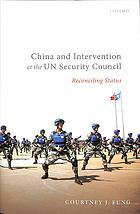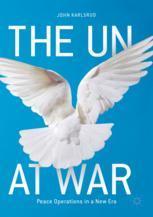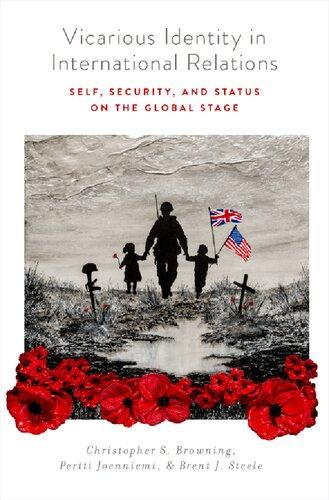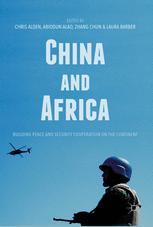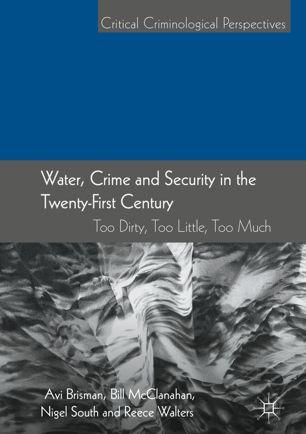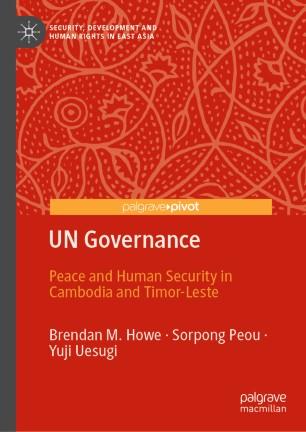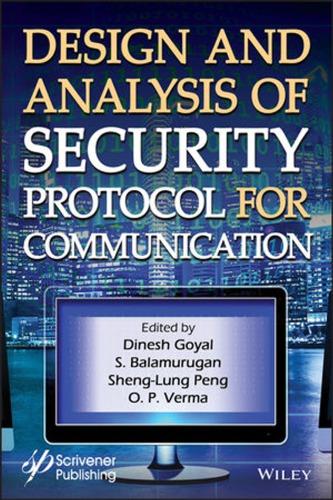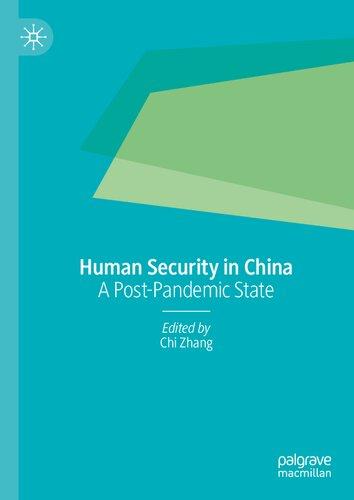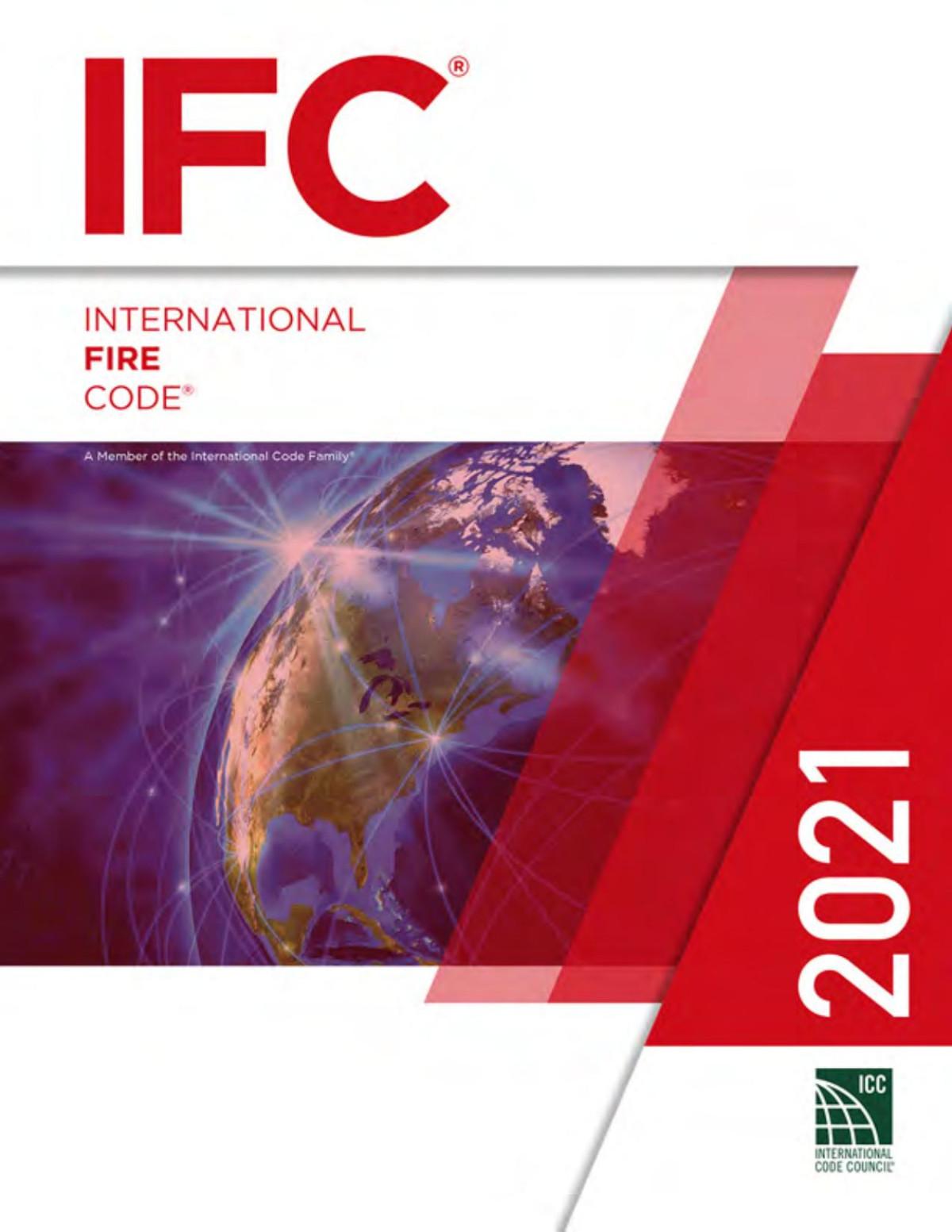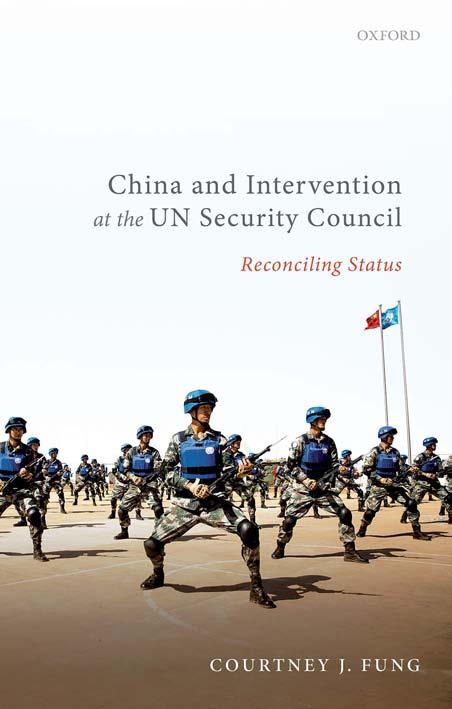Acknowledgements
Despitepresentingasetofneatexplanationsandinsightsinthebookthatfollows, Imustrecognizethatthepathtopublicationwasnowhereaslogicalorclear. Indeed,Iwasluckywithmuchgoodfortune.Atjusttherighttime,Ireceiveda GeneralResearchFundgrant(#17612518)fromtheResearchGrantsCouncilof HongKongtofocuson finishingthisbookproject.MygratefulthankstotheRGC fortheaward.
Thisbookgrewoutofmydoctoralthesis,thoughmuchofthattextdoesnot remainhere.ItwasmytimeworkingonmydissertationatTheFletcherSchoolof LawandDiplomacy,TuftsUniversity,thattaughtmetoputlessweighton academicfadsandworkonintellectualprojectsinservicetoagreater,practical good.Mydissertationadvisors AlanM.Wachman,DanielW.Drezner,Ian Johnstone,andAlastairIainJohnston alldeservemydeepestthanksfortheir patiencewithmeandmywork.Itwasalltheunansweredquestionsofmy dissertation andinparticularduringmyoraldefense,wheremycommittee wantedtodiscusstheChineseroleinaddressingtheunfoldingSyriancivil war whichpromptedmetochangemyresearchquestionentirely.
IameternallygratefulthatAlantookmeonasadoctoraladvisee,andfor alwaysencouragingmetomoveontomynextphaseofresearch(“Whywaituntil everyonesaysit’syourturn,Courtney?Ifyou’reready,youshouldtry”).Alanwas notonlygenerousenoughtoofferhisownpeersasinitialpointsofcontactduring my firstroundof fieldworkinBeijing,butthenfollowedupwithindividualemail messagesthankingthemallfortheirtime.Adecadeonfrommy firsttrip,and IstillmeetthosewhoremembermeasAlan’sstudent,givenhisproperattention todetailwiththosethankyoumessages.InAlan’sownunassumingsurehandedness,heleftaveryhighstandardformetoaspiretoasaproductiveand thoughtfulscholar.Danofferedsuccinctfeedbackduringmynumerousvisitswith him(“You’vemixedupvariablesandobservableimplications.What’sthenext question?”).Ihopetoimpartinsightsthewayhedoesinaten-minutemeeting; oneday!Dan’sargumentativecuriosity,clearthinkingandtotalimpatiencefor half-bakedworkaresolidremindersforwhyweengageinsocialsciencetobegin with.Ian’sreputationasoneofthemostgenerous,kind,andthoughtfulscholarsis entirelydeserved.Ian’sintroductiontotheCenteronInternationalCooperation gavemethelaunchpadfor fieldwork,andhe always madetimetoreadmy (many)draftsandmeetinperson.ThoseofyouwhoknowIanwillbeunsurprised;andthoseofyouwhoknowwhatascholar-practitioner’sschedulelooks likewillberightfullyimpressed.I’mgratefulforIan’smentorshiptosaytheleast.
Iain’sworkisacontinualsourceofinspirationforme.Alanwasrightthatwhile othersseetheworldinblackandwhite,Iainiswatchingincolor.Iainspenthours discussingmyDarfurcasewithme,andinaskingprobingquestionsaboutmy interviewminutiae,heshowedme first-handhowtoactually do process-tracing. Themonths(orlet’sbehonesthere,years)spentreworkingandrethinkingthis singlecase,meantthatthegrowingpainsforthenextcasestudieswerenowhere nearasbad.Ithankeachofmyteachersforlettingmeobserveandlearnas Ibecamemyownindependentresearcher.Iwillalwaysbeastudentintheir company,andtheirunanimousassumptionthatIwouldwriteabookwasa touchstoneformeuponmydeparturefromBostonfornewresponsibilitiesand timepressuresinHongKong.
Anumberoffellowshipsandvisitingpositionsgavemerespitetoworkonthe ideascontainedhere.Someofmyinitial fieldworkwassupportedbyaKonosuke MatsushitaMemorialFoundationgrant(#11-003),whichenabledmetostartdata collection.IwasaresearchfellowintheInternationalSecurityProgramatthe BelferCenterforScienceandInternationalAffairs,HarvardUniversity,underthe guidanceofStevenE.MillerandStephenM.Walt.Theprogramprovidedan intellectualenvironmenttocontemplatelargerimplicationsofmyresearch,and anexcellentopportunitytopresentinitialideastoanaudienceskepticalthat Chinacouldbeinterestedinsuchvaguethingsas ‘status’ and ‘responsibility.’ Iwasapre-doctoralresearchfellowattheCenteronInternationalCooperation, NewYorkUniversity,andthankRichardGowan,JakeSherman,andBenTortolani inparticular.Theyallnudgedalongmythinkingandemphasizedthepolicy relevanceofmyresearch.Ihadaneye-openingsummerservingintheUN DepartmentofPeacekeepingOperations–PolicyandBestPracticesSectionunder theguidanceofDavidHaeri,RoxanehBazergan,andRebeccaJovin.Itwasthere thatItrulyrealizedthatoutcomesintherealworldareidiosyncraticandfortuitous, andthatevenapparentlyinsignificant,privatemomentshaverippleeffectsfor policy.BothIainandThomasJ.Christensensupportedmeforayear-longfellowshipattheFairbankCenterforChineseStudies,HarvardUniversitythroughthe nowColumbia-HarvardChinaandtheWorldProgramfundedbytheCarnegie CorporationofNewYork.Iamsogratefulforthatuninterruptedopportunityto think,collectdata,andwrite.IthankbothIainandTomforthementorshipoverthe years,andforremindingmeoftheimportanceofhavingwork-lifebalance, somethingnotreallyvaluedintheacademe.ItwasTomwhowiselyremindedme toworksixdaysaweekwhileIcouldstilljustifyit,andthennottofeelguiltywhen otherprioritiesprevailed.IamalsogladfortheCWPfriendshipsandscholarly network;thejoltofenergyfromtheworkshopsessionsarealwaysworththe dreadedjetlag.ColinWighthadmeasavisitorintheDepartmentofPoliticsand InternationalRelationsattheUniversityofSydneywhenIwasrethinkingthe researchframework,andJingdongYuanwasageneroushosttheretoo.Ialso thankYoungHwanShinoftheEastAsiaInstituteinSeoulformyfellowshipin
theProgramonPeace,Governance,andDevelopmentinEastAsiafundedbythe JapanFoundation,theChiangChing-kuoFoundationforInternationalScholarly ExchangeofTaiwan,andYBM/KIS,whichgavemethevaluableopportunityto thinkthroughbackgroundideasfortheproject.
Manypeoplehavesupportedme,inbigwaysandsmall,andwithoutthem Iwouldn’thave figuredoutwhereIwasgoing.Thanksgotomyseniors Steve Chan,RosemaryFoot,andJaIanChong whoofferedencouragementforthe projectandreadvariousdraftsalongtheway.ThankyoutoJeniferBurckettPicker,LydiaM.Chen,JessicaDaniels,AnnDecembrele,NoahGall,Laurie Hurley,SusanLynch,EllenMcDonald,CarolMurphy,MiriamSeltzer,Sharon To,DanielTsang,andMayYimforallkeepingtheliteraland figurativetrains runningontime.
AtOxfordUniversityPress,DominicByattwasajoyofaneditortoworkwith, andIamsogratefulthathesawpromiseinthisprojectandkeptupthehuntfor reviewers.MatthewWilliamsandCélineLouasliablypulledtogetherallthe different filesandkeptproductionhumming.RobWilkinsonadmirablycleaned mytext.Iamindebtedtoallfourreviewersfortheircommentsandqueriesthat undoubtedlyimprovedthisbook.Someinitialdraftsofmyresearchwerepublishedasjournalarticles.My2018article, “SeparatingInterventionFromRegime Change?China’sDiplomaticInnovationsattheUNSecurityCouncilRegarding theSyriaCrisis,” TheChinaQuarterly,235,693–712isreprintedwithpermission fromCambridgeUniversityPress.My2016article, “GlobalSouthsolidarity? China,regionalorganisationsandinterventionintheLibyanandSyrian civilwars,” ThirdWorldQuarterly 37:1,33–50,isreprintedbypermissionof thepublisherTaylor&FrancisLtd.Copyright©SouthseriesInc.,www. thirdworldquarterly.com,reprintedbypermissionofTaylor&FrancisLtd, www.tandfonline.comonbehalfofSouthseriesInc.,www.thirdworldquarterly. com.v1.9.My2016article, “ExplainingChina’sDeploymenttoUNPeacekeeping Operations,” InternationalRelationsoftheAsia-Pacific 16:3,409–41isreprinted bypermissionofOxfordUniversityPressandtheJapanAssociationofInternationalRelations.Thisprojectalsobenefitedfromanumberofscholarswho gavetheirtimetochallengemywork.Thankyoutotheparticipantsatseminarsat theFletcherSchoolofLawandDiplomacy,theNationalUniversityofSingapore, theSaltzmanInstituteforWarandPeaceStudiesattheSchoolofInternational andPublicAffairsatColumbiaUniversity,theChinaandtheWorldCenteratthe AustraliaNationalUniversity,theAsia-PacificCentrefortheResponsibilityto ProtectattheUniversityofQueensland,andtheSecurityStudiesGroupatthe UniversityofSydney,KeioUniversity,PekingUniversity,SeoulNationalUniversity,TheUniversityofNottingham-Ningbo,andatNYU-Shanghai.
IamluckytohaveasupportiveresearchenvironmentattheDepartmentof PoliticsandPublicAdministrationattheUniversityofHongKong.Thankyouto colleaguespastandpresent,inparticularJohnBurns,JosephC.W.Chan,Peter
Cheung,YvonneChiu,JamesGledhill,EnzeHan,WillHayward,IanHolliday, InwookKim,DannyLam,HelenLiu,KaiQuek,UweSteinhoff,andInjooSohn fordiscussingdifferentphasesoftheprojectwithme.ThankyoutoThomas S.Wilkins,whowasvisitingfacultyintheDepartment,forsograciouslyfacilitatingmytimeattheUniversityofSydney.ThankyoutoElizaW.Y.Leefor supportingmymini-sabbaticalandtoRichardW.Huformakingmyapplication totheRGCpossible.ThanksinparticulartobothJosephandIanfortheirsenseof perspectiveonacademiclifeandmentorshipovertheyears.Bothbelievedinthe valueofthismonographandgavesteadyguidanceonmanagingmycompeting professionaldemandsasIembarkedonthismulti-yearproject.Iamindebtedto DebbyS.W.Chan,ChristelleChartrand,YudiFeng,andShing-HonLamforthe yeoman ’sworkofresearchassistance.Thiscategoryoftasksincludedferreting downdead-ends,chasingwindingpapertrails,andforeverexplainingsoftwareto thistechdinosaur.Inparticular,DebbyandShing-Hondealtwiththebruntofmy off-the-cuffandshort-noticerequests,ofwhichthereweremany.Iamhonoredto havelearnedfromsuchbright,youngscholarsandforeign-policypractitioners. Manycolleagues,friends,andfamilycheeredmeonalongtheway.Thankyouto NicholeArgoBenItzhak,YanBennett,SusannaP.Campbell,JonathanT.Chow, EndaCurran,Leif-EricEasley,JoeGagliano,NancyW.Gleason,ElkeJahns-Harms, TiffanyKam,JungEunKim,JeehyeKim,AlannaKrolikowski,JadaLam,Marc Lanteigne,TabithaMallory,BenMazzotta,ElizabethMcClintock,BexMetcalf, DipaliMukhopadhyay,JennyPowlesland,XiaoyuPu,IvanW.Rasmussen,Mihaela Papa,TracyRichardson,DanielSuchenski,SarahTeitt,MarinaTravayiakisMelidonis,andSeanWongforalloftheirsupport.IthankWilfredWaninparticularfor readingdrafts,puttingupwith all ofmyWhatsAppmessages,andforalways makingthetimetocallandcommiserate.ThankyoualsotoJenniferL.Erickson forofferingfrankinsightsonthebookpublishingodysseyandforallofher encouragementviaemail,ISAcatch-ups,andskypecalls.ThankstoKeiKogafor allofhissageadviceovertheyears(“justwriteit,Courtney!”)andforalwayssetting apaceformetofollow.
Theresearchthatfollowsisimpossibletodowithoutthetimeandobservations fromthedecision-makersaddressingtheseforeign-policycrises.Iamindebtedto allofmyintervieweesfortheirinsights,contacts,andreflectionsastohowforeign policyactuallyhappens.Numerouscigarettebreaks,coffeeandteaappointments helpedmeunderstandjusthowcomplex,tenuous,andattimesfortuitous,the workofday-to-dayinternationalrelationsactuallyis.IleftmanyBeijingandNew Yorkresearchtripsthinkingitwasfranklyamarvelthatanyinternationalresponse isofferedatallforcrisesintheseperennially ‘farawayplaces.’ Thankyoutoeachof myintervieweesfortheirgenerosityandpatiencewithmyquestions,andrepeated contactthroughouttheyears.Manyintervieweesnotonlyrecommendedothersto callonnext,butactuallyvouchedformetofacilitatemyappointments.
Thankyoutomytwolittlelovesforbeingtheembodimentofjoyandthebest formofdistraction twothingsthatallwritersneedingreatquantities.Myreal commitmenttoworkonthisbookbeganwhenmy firstwasstillteething,and Iwaspregnantwithoursecond.NeverdidIthinkIwouldwritesingingnursery rhymes,bouncingababydesperateto ‘help’ byjabbingatthekeyboard and neverdidIthinkthatIwould findithilarioustodoso.Mychildren,andtheir curiosity,exuberance,andpersistence(“Idoitmyself,Mama! ”)havegivenmea truesenseofpurposeaboutmyday.Myhusbanddeservesmuchgratitude. Writingisaninherentlyselfishtask:staringintospace,attemptingtoclearyour head,anddismissingwanderingthoughtsinordertotypeafewsentences.Allof thislooksmuchliketime-wastingtotheuntrainedeye.Myhusbandneveronce askedifIcouldwritefaster.AndhegavemetheonethingIcouldn ’t find anywhereelsewhentherealcrunchcame:time.Timeformetothink,write, andsleep atrueluxurywhenyoufaceakillercombinationofwriter’sblock,halffinisheddrafts,andagrowingbrood.Myhusband’sowncuriosityandzestforlife keepsmebuoyantwhenbuffeted.Iamsogratefulthatourstarsaligned.
Mydeepestthanksgotomy firstteachers,myparents.Myparentshavealways encouragedmetobelieveinmyselfandtobeunafraidof ‘stretch.’ Theyhadfaith thatIknewwhatIwasdoing evenasa16-year-oldchoosingtomovetoLondon toreadthefuzzystuffofInternationalRelations.Inparticular,Iwillalwaysbe gratefulformyparentstakingcareofeverythingduringmyjuniorsabbatical,my onepreciousopportunitytofocusonthebook’sfoundation.Mominparticular selflesslytookcareofmeandmygrowingfamily andkeptmeingoodcompany walkingtothestationandgoingfortea.Daddywasthe firsttoreadthewhole manuscript.Bothmyparentsremainmymoststeadyguides,listeningtome debateabouthowtoproceedinworkandlife.Idedicatethisbooktomyparents withlove.
4.StatusandInterventioninDarfur,Sudan2004
IV.CONCLUSION
ListofAbbreviations
AMISAfricanUnionMissioninSudan
ASEANAssociationofSoutheastAsianNations
AUAfricanUnion
CCPChineseCommunistParty
DPRKDemocraticPeople’sRepublicofKorea
EUEuropeanUnion
FRYFederalRepublicofYugoslavia
GCCGulfCooperationCouncil
HIPPOHigh-levelIndependentPanelonPeaceOperations
ICCInternationalCriminalCourt
KFORKosovoForce
LASLeagueofArabStates
MINUGUAUNVerificationMissioninGuatemala
MINUSTAHUnitedNationsStabilizationMissioninHaiti
MONUCUNOrganizationMissionintheDemocraticRepublicofCongo
NATONorthAtlanticTreatyOrganization
NLDNationalLeagueforDemocracy
OICOrganizationofIslamicCooperation
OSCEOrganizationforSecurityandCooperationinEurope
P3P3(theUnitedStates,theUnitedKingdom,andFrance)
PLAPeople’sLiberationArmy
RPFRwandanPatrioticFront
SADCSouthernAfricanDevelopmentCommunity
UN UnitedNations
UNAMETUNMissionforEastTimor
UNAMIDUN–AUHybridMissioninDarfur
UNAMIRUNAssistanceMissioninRwanda
UNFICYPUNPeacekeepingForceinCyprus
UNIFILUNInterimForceinLebanon
UNITAFUnitedTaskForce
UNMILUnitedNationsMissioninLiberia
UNMISUNMissioninSudan
UNOSOMIIUnitedNationsOperationinSomaliaII
UNPREDEPUNPreventativeDeploymentForce
UNPROFORUNProtectionForce
UNSCUnitedNationsSecurityCouncil
UNSCRUnitedNationsSecurityCouncilResolution
UNSMISUNSupervisionMissioninSyria
UNTAETUnitedNationsTransitionalAdministrationinEastTimor
Introduction
ChinaisincreasinglyforthrightaboutthespecterofregimechangeattheUN SecurityCouncil.ChinawasoutragedwiththetopplingofColonelMuammar Gaddafi inOctober2011,consistentlycondemningtheescalationofthebombing campaignasoversteppingtheUNSecurityCouncilmandate.¹Theno-flyzoneand protectionofciviliansmandateimplementationwereproofforsomeChinese officialsthat “Westerncountrieshavelongharboredtheintentionofdethroning Libya’sMuammarGadhafi regime.”²WhendebatingpossiblemodesofinterventionintotheSyriacrisis,Chineseofficialshaveoftenstressedthat “Chinaopposes anyexternallyimposedsolutionaimedatforcingaforeign-imposedregime change.”³InescalatingUNSecurityCouncilsanctionsagainsttheDemocratic People’sRepublicofKorea,ChinapointedlyremindedfellowCouncilmembers “don’tseekforeign-imposedregimechange;don’tinciteacollapseoftheregime.”⁴ RepeatedstatementslikethesebelieaseriousconcernforChinaaboutthetensions betweenregimechangeandUNSecurityCouncilintervention.WhileChinahas graduallyeasedintoacceptingintervention,Chinaremainsreluctanttocondone regimechange.⁵ Amongstotherreasons,aleadingconcernforChinaisthatbeing permissiveincasesofregimechangecouldsetprecedentforsuchactionsagainst China,whereChineseCommunistPartycontrolandstabilityisarguablythemost importantcoreinterestforBeijing.AsoneChineseMinistryofForeignAffairs advisorplainlystated: “whenwevoteonSyria,wearethinkingofChina.”⁶
China’sconcernsaredrivenbyanawarenessthattheUNSecurityCouncil coulddirectlyorindirectlyaddressregimechange:theforcibleorcoercedremoval ofthepoliticalleadershipofastatebyoutsideactors. ⁷ Broadchangesinthe internationalsystem,meanthatnormslikeprotectionofcivilians,accountability, andtheresponsibilitytoprotectareconsistentlyinvokedtoprotectpopulations underthreatofmassabusebytheirgovernments.NolongerareUNeffortslimited tointer-statethreatstointernationalpeaceandsecurity,butincludeaddressing internalthreatslikegenocide,ethniccleansing,andstatefailure,forexample. Scholarswrylyobservethatinthepost-ColdWarera,amuchmoretargeteduseof forceagainstseniorgovernmentofficials,asopposedtowholestates,wouldhave savedmuchbloodandtreasure.⁸ Inanerawherestatesthemselvesdeliberately abusetheirpopulations,oftenwiththedirectionandsupportofseniorgovernmentofficials,theUNSecurityCouncilhasauthorizedresolutionsthatfundamentallychallengegovernmentleadershipstructures inorder toaddressthemass
2
humanrightsabuseathand,ratherthanassumingthehoststategovernmentasa partnerinresolution.⁹ Forexample,InternationalCriminalCourtreferralsfor SudanandLibyaledtotheindictmentsofbothstates ’ leaders;¹⁰ peaceenforcementmissionsinthecaseofCôted’IvoiregavewaytoUNhelicopters firingon governmentmilitaryinstallationsandthepresidentialpalacewheretheincumbentwassequesteredtoenforceatransferofpowertothenewly-electedheadof state.¹¹Suchinterventionsmeantoapplypressureontheregime,leadingtoa blurringofregimechangeandUN-ledintervention.¹²
Giventhisevolvingnormativecontext,thisbookisprimarilyinterestedincases ofnon-consensualinterventionincasesofmassatrocitiesperpetratedbyorwith tacitsupportofthestate.CaseswithouthoststateconsentmeanthattheUN SecurityCouncilmustcoercethestatethatisperpetratingthemassabusethrough aviolationofstatesovereignty,whichisacoreprincipleforChina.¹³This definitiondrawsfromthehumanitarianinterventionliterature,thoughIdonot concentrateonmilitarymeansastheonlytoolforcoerciveinterventionagainst thestate.¹⁴ Inthesecasesofnon-consensualintervention,Ifocusonactivitiesand thethreatofactivitiesunderChapterVIIoftheUNChartertoincludesanctions (diplomaticandeconomic),legalmeasures(InternationalCriminalCourtcountry casereferrals)andtheuseofmilitaryforce(peacekeepingoperationsandno-fly zoneenforcement,forexample) allofwhichdonotrequirehoststateconsent.¹⁵ Asscholarsnote,theuseofthisvarietyofmilitaryandnon-militarytools representa “compromiseofsovereignty...thatareexceptionalinsomeway,”¹⁶ disruptingthe “conventionalpatternofinternationalrelations.”¹⁷
Incontemporaryinternationalaffairs, “responsible” membersoftheinternationalcommunitydisplayacommitmenttoprotectingcollectivegoodslike humanrights,non-proliferation,development,andclimatemanagement.¹⁸ These activityareasandtheirattenuatingregulationsandnormsarerecognizedas legitimatebymembersininternationalsociety,andtherefore,statesthatengage inthesepracticesalsohavestandingofgoodinternationalcitizenship.¹⁹ The normsofaccountability,²⁰ theresponsibilitytoprotect,²¹andprotectionofcivilianschallengesovereigntyboundariesinprivilegingpeoples ’ rights eveninthe faceoftheirstate andbyimplicationholdingstatesandtheirleadersresponsible formassabuse.AlthoughChinamaybereluctanttosupportnormschallenging sovereignty,Chinaisconsciousthatitcannotdismissthemaltogether.Evenif thesenormsarenotfullyinternalized,statesmaystillcomplywiththesenormativestandardsinordertoreducesocialopprobriumandmaximizesocialbenefits fromtheirpeers(praise,recognitionandprestige,forexample).²²AlthoughChina maybemoreengagedwiththeinterventionregimeanddisplayingadeepening commitmenttoitsinternationalresponsibilities,Chinaisstillreluctanttopromoteactivities,likeregimechange,thatareantitheticaltostatesovereignty.
Chineseofficialsarekeenlyawarethatregimechangecanoccurviaa “Trojan horse” ofintervention:whenapparentlylegitimaterequestsforinterventionpush
throughregimechangeonthesly.²³AsoneChineseofficialnoted: “regimechange inLibyaleft[us]withthisfeelingthat...wehadbeenfooled.”²⁴ UNSecurity Council-authorizedresolutionswereusedassteppingstonestoremoveGaddafi. Interviewsrevealthatpotentialcasesofinterventionwithasurroundingpublic discoursepresentingregimechangeasaviablepolicychoicearesomeofthemost difficultcrisesforChinatoaddressattheUNSecurityCouncil,asChinadoesnot wanttocondoneorsupportregimechangeviaUNefforts.²⁵ Discourse,andthe narrativesthatfollow,makesomefactsappearasmorerelevantthanothers.²⁶ Discourse “worktodefineandtoenable,andalsotosilenceandexclude,for examplebylimitingandrestrictingauthoritiestosomegroups,butnottoothers, endorsingacertaincommonsense,butmakingothermodesofcategorizingand judgingmeaningless,impractical,inadequateorotherwisedisquali fied.”²⁷ Public discoursecallingforregimechange whetherimplyingthatregimechangeis “inevitable” giventhearcofthecrisis,orframingitas “ necessary ” inorderto resolvethecrisis presentregimechangeasaviableandlogicalgoalinthecontext ofdebatesabouthowtointerveneinaparticularcrisis.² ⁸ Publicdiscoursehelps createapolicywindow,whendecisionmakerscanswitchpolicytracksatmuch lowercosts awayfromtoleratingoracceptingheadsofstatetopursuingdebates aboutforciblyremovingthem.²⁹ Tobeclear,myemphasisonpublicdiscourseas anelementofcontextualconstructivismisnottosaythatmaterialconditionsdo notmatter,orthatideasandnarrativesalwaysmatter.Iwanttoemphasizethat socialconstructionsbywayofpublicdiscourseofregimechangematterwhen embeddedinwidermaterialconditions.Thisoccurswhenahoststateappears “ripe” forregimechange(i.e.whentheheadofstatedirectsorsupportsmass humanrightsabuse).Andalthoughregimechangemaynotactivelybediscussed ontheUNagendainregardstothehoststate alogicalchoicegivenChina’ s veto thesedominantnarrativescastlongshadowsonactuallivenegotiationsfor interventioninthehoststate.³⁰ AsoneadvisortothePRCMinistryofForeign Affairsnoted, “talkingheadsinWashingtonandLondonareimportantforwhat weachievein[UNSecurityCouncildeliberationsin]NewYork ...it’snotjust noise.”³¹Itisnotthecasethatpublicdiscoursesupersedesdiscussionsinchambers,³²butthatpublicdiscourserepresentsasignalthatregimechangecouldend upadistinctpossibilityforthehoststate evenifthisisnotpartofthenegotiating agendaamongsttheUNSecurityCouncil.³³
ThePuzzle
DespitearepeatedcommitmenttotheFivePrinciplesofPeacefulCoexistence,and repetitionsforinterventionunderUNSecurityCouncilauthorization,hoststate consent,andregionalsupport,China’srecordoninterventionisfundamentally inconsistent,drivenbyapragmaticweighingofprinciplesversusnationalinterests.
Chinanowhasamuchmorediversifiedpositiononintervention,votingforrobust peaceenforcementmissions,³⁴ committingcombattroopsonmission,³⁵ andis activelyengaginginthediscourseregardingtheresponsibilitytoprotect.³⁶ Yeteven withChina’srepeateddiscontentregardingregimechange,Chinahasvariedits responsetoUNSecurityCouncilinterventioninthetrinityofpost-September11 caseswhereheadsofstatehavebeenmarkedfordispatch.Advocatesassertedthat “regimechangealonecanendgenocideasthedomesticsecuritypolicyofchoicein Sudan”;³⁷ thattheUnitedNationsmust “ensuretheousterofLibyanleader MuammarGaddafi, ”³⁸ andthatBasharal-AssadofSyriawasa “‘deadman walking’ ”³⁹ However,despitetherobustpublicdiscourseinthesecasesidentifying thesestrongmenfordispatch,ChinaacquiescedtoanInternationalCriminalCourt referralforSudanin2005andlargelysupportedinterventionintoDarfurbywayof aChapterVIIpeaceoperation;supportedanInternationalCriminalCourtreferral andacquiescedtoano-flyzoneintheLibyacasein2011,buthaltedanyinterventionsintotheSyriacrisis,issuingrepeatedvetoessince2011.
China’srecordofresponsesregardinginterventioncannotberobustlyexplained byexistingtheory.Ifrealisttheoriesguidedecision-making,thenonewouldexpect vetoesinthecasesofSudanandLibya,whereChinahadthemostsignificant financialinvestmentsandclosepoliticaltieswithbothleaders.Yet,thesewerethe caseswhereChinaeitherpermittedoractuallysupportedintervention.Ifliberal theoriesguideChina’sdecision-making,thenonewouldexpectthattheUnited Nationsinstitutionalsettingwouldclarifyinformation,reducetransactioncosts, andidentifyfocalpointssoastomodifyChina’spreferencestocomplywith emergingnormsregardingaccountabilityformassivehumanrightsabuses,motivatingChinatocastatleastabstentionvotesconsistentlyacrossallthesecases.⁴⁰ Yet Chinahascastvotesinallthedifferentvotingcategories,includingmultiplevetoes inrelationtotheSyriacrisis.TheChineseforeignpolicyliteratureoffersfew insights.ChinadidnotsupportinterventionintoallthreecrisesinthefaceofUS pressuretodoso,⁴¹noristhisastraight-forwardstoryoflearningoradaptation despitetherealizationthatChinahadenabledregimechangeinthecaseofLibya, ChinacontendedwithdifficultiesincastingitsSyriavetoes.⁴²Fundamentally, China’srangeofresponsesisinconsistentwithrationalsecurity-maximizingcalculations.Astheseexplanationsfallshort,weareleftwithapuzzle:forastateso reluctanttocondoneintervention especiallyintheextremeofcasesidentifiedin thepublicdiscourseastargetsforregimechange whatexplainsChina’ sresponse tointerventionattheUNSecurityCouncil?
ArgumentinBrief
Thisbookarguesthatstatusisanoverlookeddeterminantinunderstandingthe variationinChina’spositiononinterventionattheUNSecurityCouncil.Istart
withtheunoriginalassumptionthatstatesarerationalactorsinasocialcontext.⁴³ Thedesiretotakeactionsthatcomplywithstatus,andrelatedsocialfactorslike self-imageandidentity,canmeanthatstatesselectpolicyoptionsevenifitmeans bearingmaterialcosts.⁴⁴ Status astate’ s “standingorrankinastatuscommunity”⁴⁵—canhaveindependentandsignificanteffectsforChina’spositionon intervention.StatuscanshapeChina’sresponsetointerventionbywayofChina’ s peergroups.Undercertainconditions,China’speergroupsareabletomodify China’spreferences,evengettingChinatopermitaction.China’spursuitofstatus isinpartdrivenbyaconsequentialistcalculationtomaximizeChina’sstandingas agroupmember,butitisalsoinherentlysocial,withChinadrivenbyalogicof appropriatenessandadesiretoconformtoanintersubjectivestandardofgood behaviorasamemberofthepeergroup.Tothisextent,statusiscausal(i.e. externaltoactors) and constitutive(i.e.partofwhoactorsare).Idrawuponthe statusandChineseforeignpolicyliteratures,usingaconstructivistlensinsofar thatthisapproachunpacksaspectsofinternationallifethataretakenasnatural, givenorembedded,allowingmetoprobeagencyandsocialconstructs. ⁴⁶ Status highlightstheconnectionbetweensocialandstrategicdriversinforeignpolicy decision-making,asstates’ actionsareframedbyanormativecontext.Bybetter understandingtheimpactandscopeconditionsofstatuswecananswerfundamentalquestionsof why Chinatookcertainpositionsregardinginterventionand how thesepositionswerejustified.Therefore,thebookisguidedbyasecondary researchquestion,howdoes status affectChina’sresponsetointerventionatthe UNSecurityCouncil?
ThoughChina’sfocusonstatusisnotanewproposition,⁴⁷ thisbookoffers greateranalyticalpurchaseontwogrounds.First,IshowthatChinaisnot motivatedbyasingularstatusconcernbyunpackingtheeffectsofChina’stwin statusesas both agreatpower and asadevelopingstate therefore,Chinais focusedonrecognitionfrom both itsinterventionpeergroups:theUnitedStates, theUnitedKingdom,andFrance thewestern,permanentmembersoftheUN SecurityCouncil,theso-called “P3”—and also representativesoftheGlobalSouth, whichincludegeographic-speci ficregionalorganizationsandoftenthehost state.⁴⁸ Second,thisbooktakesstatusseriouslyasavariable,anddoesnottreat statusasaconstantvaluetoChina.TheUNSecurityCouncilisanexcellentsocial environmenttoexamineChina’ s statusconsiderations,andIisolatethecausal mechanismandconditionsunderwhichstatuscanmatterenoughtoChinato impactitsresponsetointervention.Chinaismostconcernedaboutsecuringstatus inthewakeofastatustrigger,andwhenitspeergroupscongregatearoundthe samepolicyposition;whenitspeergroupsremaincohesive,withnoindividual statedefections,andwhenpeergroupscanmakeanunresponsiveChinapay socialcostsforbuckinggroupstandardsofgoodbehavior.Withthisinsight, IaddressabroaderquestionaboutthelimitsofstatusasavariableinChinese foreignpolicy.
Workinginductively,Idevelopmytheorybasedonanextensivecollectionof data,acceptingtheboundedtransparencyregardingongoing,sensitiveforeign policymatters.ForthehistoryofChinaandintervention,thebookrelieson primarysourcestoincludeUNSecurityCouncilresolutions,verbatimrecordsand officialstatements,andsecondarydocumentsfromnewsreportstoacademic texts.Inordertouncoverthe “dogsthatdidn’tbark”—thosevotingoptions declined byBeijing,forexample Iconductedover200interviewswithUN officialsandChineseforeignpolicyelitesduringmultiple fieldtrips primarily inBeijingandNewYork.Respectingintervieweeanonymity,andalsothatreaders mayprefersourcesthattheycancross-check,Icitetheseinterviewmaterials sparingly.ParticipantobservationatUNHeadquarterswascrucialtounderstand theneardeferencegiventoChinabecauseofitspositionasananti-intervention, vetoplayer.IcreatedadatasetofChinese-languageanalysisonregimechangeand interventionusingtheChineseNationalKnowledgeIndexdatabase,codingeach articleinordertounderstandhowregimechangewasconsideredacrosstimeby Chineseanalysts,scholars,andforeignpolicyelites.Withthesedatasources,Iam abletodistillarichstudy,goingbeyondworksavailableinbreadthandindepth, primarilyfocusingonthe2000–2015period.
Contributions
ThisbookmakesthreebroadcontributionstotheInternationalRelations literature.
First,itshowshowstatus oftenconceivedofasacauseforconflict isa determinantforcooperation.Bytreatingstatusasavariableandnotanunproblematicgivenininternationalpolitics,Itakeseriouslytheneedtoanalyzeand specifyitseffectonachievingcooperationattheinternationallevel.Inkeycases, China’sbehaviorisinconsistentwithrationalistargumentsthatemphasizea consequentialistcalculationofmaterialinterests.Bydetectingandexplicating thisvariable,Iamabletoofferbetterexplanationsthanthoseoutcomespredicted bythetraditionallensofstatesecurity.Thebookhighlightstheeffectsofholding morethanonestatusatatime asChinaissimultaneouslyagreatpoweranda GlobalSouthstateinregardstointervention andunpackshowstatusworksin practice.Muchofthestatusliteraturefocusesonhowastatecangainentrytoa newpeergroupthroughstatussignaling,status-seekingbehavior,andstatus attribution but “requestingmembership” toapeergroupisnotthesamething as being amemberofthegroup.China’smembershipinitsinterventionpeer groupsisexplicitlynegotiatedbyitsself-identificationandbehavior.Butwhat doesitmeantobeamemberofthepeergroupthatitselfisdebatingits intersubjectivestandardofgoodbehavior?Orwhenthatstandardofgoodbehaviorsuddenlyshiftsinfavorofrobustaction,whichChinaisreluctanttosupport?
Thebookshowshowtheprocessofnegotiationandnormativecontestation withinpeergroupsaffectsChina’sassessmentsofitsdesiretomaintainstatus.
Second,thebookoffersanewlenstoanalyzehowrisingpowerswrestlewith attaininggreatpower and maintaining “lower” status.Afterall,risingpowersare statesinstatustransitionperse,andtheassumptionthatthesestatesautomaticallyseekto “drop” lowerstatusshouldbeconsidered.Understandinghowrising powersreconciletheirstatusdilemmas bythisImeanthedilemmaofhowthey securestatusrecognitionfrom all theirgroups,asopposedto which oftheirstatus groups isoneofthebroaderissuesunderscrutinyhere.Insodoing,thebook considersatwhatcostsrisingpowersarewillingtopursuestatusgoals,evenwhen thedefinitionsofbeingin-statusarechangingorill-defined.Addressingstatus dilemmasisameanstocategorizetheserisingpowerstates,differingfrom traditionaldefinitionsthattypicallyemphasizematerialfactorsasidentifiers specificallypreponderanceofglobalmilitarycapabilities;⁴⁹ changesinrelative materialcapabilitiesandinfluence; ⁵⁰ globalratherthanregionalinterests,⁵¹or seekingrecognitionasagreatpower.⁵²
Third,IextendanalysisintotherelationshipbetweenUNSecurityCouncilsanctionedinterventionandregimechange,whichissurprisinglyunder-studied. Bothsubjectsoftenrequiretheuseofforceinexplicitviolationofstatesovereignty thecornerstoneofmoderninternationalrelations andarecostlyin blood,treasure,andhavethepotentialtoexacerbateexistingconflict.⁵³However, theliteraturelargelyapproachesregimechangefromthelensofUSforeignpolicy, reflectingtheexperienceofthedominantstateinthesystem.⁵⁴ Shiftingthefocus totheUNSecurityCouncil theoneinstitutionexplicitlyanddirectlycharged withgoverninginternationalpeaceandsecurity allowsustoreflectonthereality thattheUNSecurityCouncil,anditscompositemembers,mustnavigatesuch mattersinconsiderationofintervention.
IntermsoftheChineseforeignpolicyliterature,Imakethreekeycontributions also.First,Icontributetoourunderstandingofunderwhatconditionsstatusis pursuedbyChina.China’sfocusonstatusisanobsession:sincethe1990s,Chinese eliteshave “evoked ‘internationalstatus’ (guojidiwei)asifitwerethemost desirablevalue,theonethatleadstopower,security,andrespect.”⁵⁵ Suzukinotes thatthereis “acurious fixation” withstatuswithinChina,⁵⁶ whileDengnotesthat “[j]udgingbythefrequencyoftheterm’suseinofficialChinesediscourseand scholarlyanalyses,[China]mayverywellbethemoststatus-consciouscountryin theworld.”⁵⁷ IndeedChineseanalystshaveattemptedallsortsofmeasuresto establishChina’sstatus.⁵⁸ ScholarshavelongnotedthatChinaisastateparticularlyconcernedaboutitsstatus,⁵⁹ buthavebeenunabletoexplaintheoccasional willingnessofChinatosacri ficestatusandstandaloneinforeignpolicydecisions attheUNSecurityCouncil.⁶⁰ Whenitcomestooutliningscopeconditionsfor whenastateshouldcaremostaboutitsstatus,theliteratureoffersscantguidance: eitherwhenstatesarenovicestoacommunity,therefore,theyaremosteagerto
8
complywithnormstoprovetheirmembership,⁶¹orpeergroupscanonlyexert pressureonmattersthatarenotbehindChina’ s “firewall” ofcoreinterests.⁶²Once ChinaperceivesUNSecurityCouncilissuestotouchuponTaiwan,forexample, Chinaisassumedtobeimmunetopressuresfrompeergroups.AsoneseniorUN officialnoted, “Chinaneedstobeagoodcitizen butonlyuptoacertainpoint; ‘OneChina’ isanexistentialissue...diplomaticrelationswithTaiwanarethered linenottobecrossed.”⁶³
However,ChinaisnolongeranoviceattheUnitedNations.Havingassumed itsseatattheUNSecurityCounciloverfortyyearsago,Chinahasasteadyrecord ofgradual,scaledengagementwithinterventionproblems.Furthermore,the conceptofthecoreinterests “firewall” isalsounclear.IntheLibyacasealone, theUNSecurityCouncilunanimouslyreferredasittingheadofstatetothe InternationalCriminalCourt,andwithevenmoreofasurprise,Chinaabstained onimposingano-flyzoneontheregime. ⁶⁴ Boththesevotesoccurredagainsta vividpublicdiscourseonregimechangecallingfortheexplicitoverthrowof Gaddafi.Ifthecoreinterestscopeconditionshouldhold,thenonewouldexpect vetoesagainstbothproposedresolutions afterallprotectingthelongevityofthe ChineseCommunistParty,byensuring against precedentforsuchcoercive regimechangeabroad,istheparamountinterestforChina.
Second,IcontributetoourunderstandingofChinaasarisingpowerandits involvementinmultilateralsecurityinstitutions.DespiteChina’sgrowingimportancefortheinterventionregime,Chinapositiononinterventionremainspoorly understood,withonlyasmallbodyofsporadicallyproduced,primarilyhistorical scholarlyworks.⁶⁵ Thecopiousresearchintointerventionandtheliteratureonthe workingsoftheUNSecurityCouncilhasscantmentionofChina.⁶⁶ Examining ChinaandinterventioncontributestothedebateontheriseofChinaandwhat typeofglobalsecurityproviderChinawillbe.⁶⁷ Forthemostpart,theliteratures onrisingpowersandglobalgovernancehavebeenleftseparate.⁶⁸ Whilethereisa growingliteratureonChinaandpeacekeeping,intervention,andspecialistsecurityregimes thereisyettobeasystematicinvestigationofChina’ sresponse regardingregimechangeandintervention.ThebookexploresChina’sreluctance tocondoneregimechange.AsPhilpottargues,sovereigntyisconceptualizedin phases,withperiodsof “revolution,” whereitsnormativecontentisredesigned. ⁶⁹ Sovereigntyisasocialconstructopentoreinterpretationbystatesthatpopulate thesystem.⁷⁰ Periodically,theUNSecurityCouncilinsertsitselfinoverridingstate sovereignty,andsincethe1990s,theUNSecurityCouncilhassometimesviewed massviolationsofhumanrightsasthreatstointernationalpeaceandsecurityto beaddressedthroughevennon-consensualintervention.Thelimitsofinterventionarerigorouslycontestedandacomplexnormativelandscapelinksinterventiontoabroaderdiscussionconcerningregimechange.Regimechangeis explicitlyfocusedonfundamentaltransformationsofdomesticinstitutions so not onlyisitaboutrelinquishingcontroloverterritorialsovereignty(asinthecase
ofintervention),butregimechangegoestotheheartofthematterofunseating governments.AcoreinterestforChinaremainssecuring “statesovereignty, nationalsecurity,territorialintegrity,andnationalreunification,China’spolitical systemestablishedbytheConstitutionandoverallsocialstability.”⁷¹Arguably,the firstpriorityfortheChineseCommunistPartyisregimesurvival: ⁷²Chinese CommunistPartysensitivitytoregimesurvivalistranslatesintoconcernsabout regimechangeelsewhere.
Third,IexamineChina’ssensitivitytoregimechangeinthecontextofnonconsensualintervention,anunderstudiedthemeinChineseforeignpolicy.⁷³ ConsiderationsofregimechangeappeartobeanimportantelementinChinese foreignandsecuritypolicy,⁷⁴ withChinesestrategistsdiscussingconcernsabout “constant ‘regimechange’ pressure ” fromtheWest.⁷⁵ Christensensuggeststhat oneofthekeystostableUS-ChinarelationsisfortheUnitedStatestoconvince Chinathatitisnotpro-activelytargetingChinaforregimechange.⁷⁶ Theregime changedebatecapturestheedgeofwhatChinaconsidersfeasibleinitsnormative framework.Counterintuitively,thisdebatereflectsChina’seffortsasanorm entrepreneurofsorts,⁷⁷ whereChinaconteststheemergingpro-intervention, pro-human-rights-firststatusquo.InthiscrucialphaseofChina’srise where Chinaisnotonlyexpectedto “domore,” buthasshownawillingnesstodoso,the bookshowsChina’sresponseandadaptationtotheshrinkingrhetoricalspacefor itspreviousjustificatorydiscourselimitingintervention.IilluminatethequandariesfacedbyChinaasitengagesforcefullywithattemptsatnewdiplomatic measuresandeffortstoregainrhetoricaladvantagebyestablishingadditional criteriaforintervention.ThebookcaptureshowChinanavigatesthis “statusquo intransition” asitspeergroupsattempttorede finetheboundariesforinterventionagainstapublicdiscourseforregimechange.
PlanoftheBook
Chapter1setsthesceneregardingChina’srecordoninterventionattheUN SecurityCouncilsinceChinaassumeditsseatin1971.Thechapterillustrates howtheUNSecurityCouncilhastakenanincreasinglyexpansiveviewastowhat isunderitspurview includingmassivedomestichumanrightsabusesasthreats tointernationalpeaceandsecurity andthedifferenttoolstoaddressthese threats.Thechapterrevealsthatforallitschangesinregardstointervention, ChinaprefersUNSecurityCouncilauthorized,consent-basedinterventions, supportedbyregionalplayers.
InChapter2,IturntomyoriginaldatasetofChinese-languagesourcesto understandChineseviewsontheconnectionbetweenregimechangeandintervention,andunpackwhyChina findsregimechangesoproblematic.I findthat China’scontroversiesoverregimechangefallinto fivecategories:definingwhich
